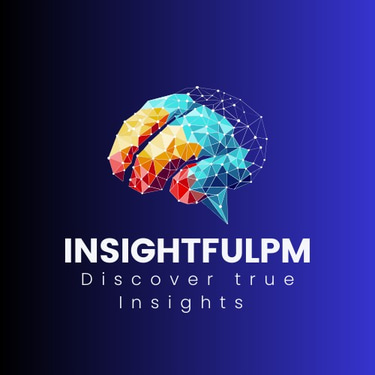AI's Role in Revolutionizing Project Management
AI is emerging as a game-changer in the industry, offering solutions that boost productivity, enhance decision-making, and optimize resource allocation.
Praful Pujar
9/19/20243 min read
AI's Role in Revolutionizing Project Management
In today's fast-paced business environment, project management teams face increasing pressure to deliver projects on time and within budget. Unfortunately, traditional project management methods, relying heavily on human input and intuition, often fall short, leading to inefficiencies, delays, and cost overruns. AI, however, is emerging as a game-changer in the industry, offering solutions that boost productivity, enhance decision-making, and optimize resource allocation.
Key Benefits of AI in Project Management
1. Automating Routine Tasks: One of AI’s most significant contributions to project management is its ability to automate routine and repetitive tasks. AI-powered tools can take over administrative functions such as scheduling meetings, sending status updates, tracking project progress, generating reports, and even drafting emails. By offloading these tasks, project managers can redirect their attention to more strategic activities like stakeholder engagement and risk management.
2. Data-Driven Decision Making: In an era where data is the new oil, AI offers a powerful way to harness project data for informed decision-making. Many project management teams struggle to monitor key performance indicators (KPIs) in real-time, leading to reactive rather than proactive management. AI changes this by offering real-time analytics, insights, and predictions based on historical data. This allows project managers to anticipate challenges, improve risk management, and adjust their strategies in real time. For instance, AI can help track budget consumption, forecast cost overruns, and assess project health. This ensures that project managers are always a step ahead, making decisions based on accurate, up-to-the-minute information.
3. Resource Optimization: Managing resources is one of the most critical and complex aspects of project management. AI excels at optimizing resource allocation by analyzing various factors such as team availability, skill sets, and current workloads. AI-driven tools can predict the best possible resource assignments for each task, ensuring the right people are working on the right tasks at the right time. This not only reduces downtime but also prevents overloading team members, leading to better project outcomes and higher employee satisfaction.
4. Predictive Analytics for Project Planning: AI’s predictive capabilities are a huge asset in project planning. By analyzing past project performance data, AI can predict future project outcomes, such as timelines, budget forecasts, and risk factors. For example, AI can identify trends and potential bottlenecks that may arise based on historical data, allowing project managers to implement preventative measures before problems escalate. AI tools can provide early warnings for resource shortages, deadline risks, or budget overruns, giving project managers the chance to mitigate these issues before they become critical.
5.Consistent Reporting for Leadership Teams: In today’s globalized and diverse work environment, project teams often consist of members from different cultures, languages, and professional backgrounds. One of the challenges this presents is ensuring consistency and clarity in reporting, especially for leadership teams who rely on concise and actionable insights to make decisions. AI-driven reporting tools play a crucial role in addressing this challenge by generating reports that are clear, consistent, and free from the biases of individual project managers’ language, tone, or cultural nuances.
AI can standardize project reports by analyzing key project metrics and translating them into coherent, structured formats that align with leadership's expectations. Regardless of a project manager’s communication style or fluency in the corporate language, AI ensures that all reports present a uniform level of clarity. This not only enhances understanding but also helps leadership teams make quicker, more informed decisions without getting lost in varied reporting styles. The result is a more cohesive and efficient communication pipeline that bridges cultural and linguistic gaps in project reporting.
Conclusion
AI is transforming the field of project management by automating routine tasks, providing data-driven insights, and optimizing resource allocation. Its ability to predict outcomes, generate consistent reports across diverse teams, and enhance decision-making makes AI a must-have tool for any modern project management team. As AI technology continues to advance, project managers who embrace these tools will not only see greater efficiency and productivity but also the ability to deliver projects with unprecedented accuracy and success.
We can help ! Reach out to us for a free consultation
